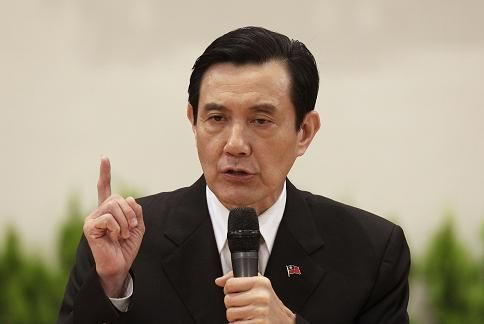Taiwan President Demands Japan Apologize For Using Sex Slaves In World War II

The president of Taiwan has asked the Japanese government to apologize for its use of enslaved women as prostitutes during World War II and provide them with financial compensation.
Ma Ying-jeou made the plea while attending a conference in Taiwan on sexual slavery -- the 11th Asian Solidarity Conference for the Issue of Military Sexual Slavery by Japan held by Taipei Women’s Rescue Foundation -- which was attended by elderly women from Taiwan, China, South Korea and the Philippines who had been exploited for sex.
The Japanese army’s sexual enslavement of Asian women during World War II is a recognized fact,” Ma said.
In 1995, the U.N. listed comfort women as military sex slaves, but, regrettably, the Japanese government has never admitted its mistakes. Some [Japanese] politicians have even denied that the Japanese military used forced prostitution or claimed the evidence is insufficient.”
"Historical mistakes can be forgiven, but the lessons of history should not be forgotten," Ma added.
Only when we learn from our past mistakes can we prevent such tragedies from happening again. I feel that such an apology and compensation can sometimes be [the most powerful resolution]."
According to historical accounts, the Imperial Japanese Army abducted at least 200,000 women of all ages across East Asia to serve as “comfort women” for its occupying troops.
Koreans are believed to have accounted for the bulk of these sex victims.
Ma also said he would do his utmost to help Taiwanese women who were forced into sex slavery seek compensation from the Japanese government.
However, as these women are now in their 70s, 80s and 90s, their numbers are falling, and any apology from Tokyo would have to be immediately forthcoming.
It is unlikely Japanese officials will make any such apology given the sensitive nature of the topic and the controversy that the war still evokes in the region.
Although a government statement in 1993 conceded the Japanese army's abuse of women in the region during the war, in 2007 then-Japanese Prime Minister Shinzo Abe denied that his country ever forced women into prostitution, triggering outrage across East Asia.
(Abe, incidentally, is now seeking to return to power in elections this month.)
Nonetheless, back in 1995, Tokyo offered each alleged sex slave the equivalent of about $17,240 in exchange for dropping all claims against the Japanese government. The offer was soundly rejected, and protests continued.
In a book titled “Comfort Women: Sexual Slavery in the Japanese Military During World War II,” Japanese historian and author Yoshimi Yoshiaka spelled out the sex crimes committed by Japan's army during the war, including the procurement of girls as young as 10.
After the war, these women suffered from depression, disease, sexual dysfunction and rejection by their native countries.
Jeanne O'Hearn, an Australian woman who was captured by Japanese military while a young nun, wrote her own harrowing story in “Cry of the Raped” in 1992.
"Even after almost 50 years, I still experience this feeling of total fear going through my body and through all my limbs, burning me up,” she wrote.
It comes to me at the oddest moments in which I wake up with nightmares and even feel it when just lying in bed at night. But worst of all, I felt this fear every time my husband made love to me. I have never been able to enjoy intercourse as a consequence of what the Japanese did to me."
© Copyright IBTimes 2025. All rights reserved.



















